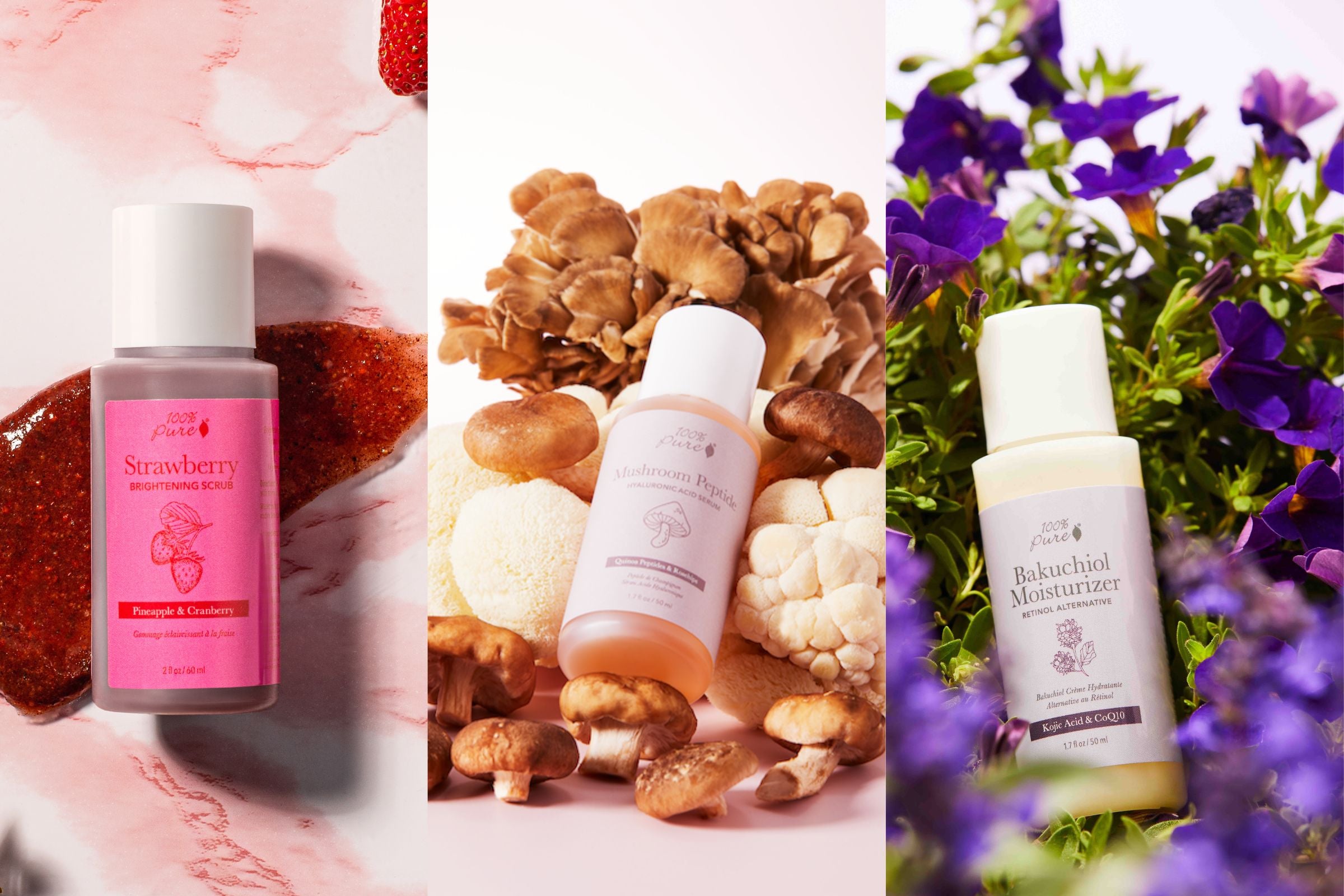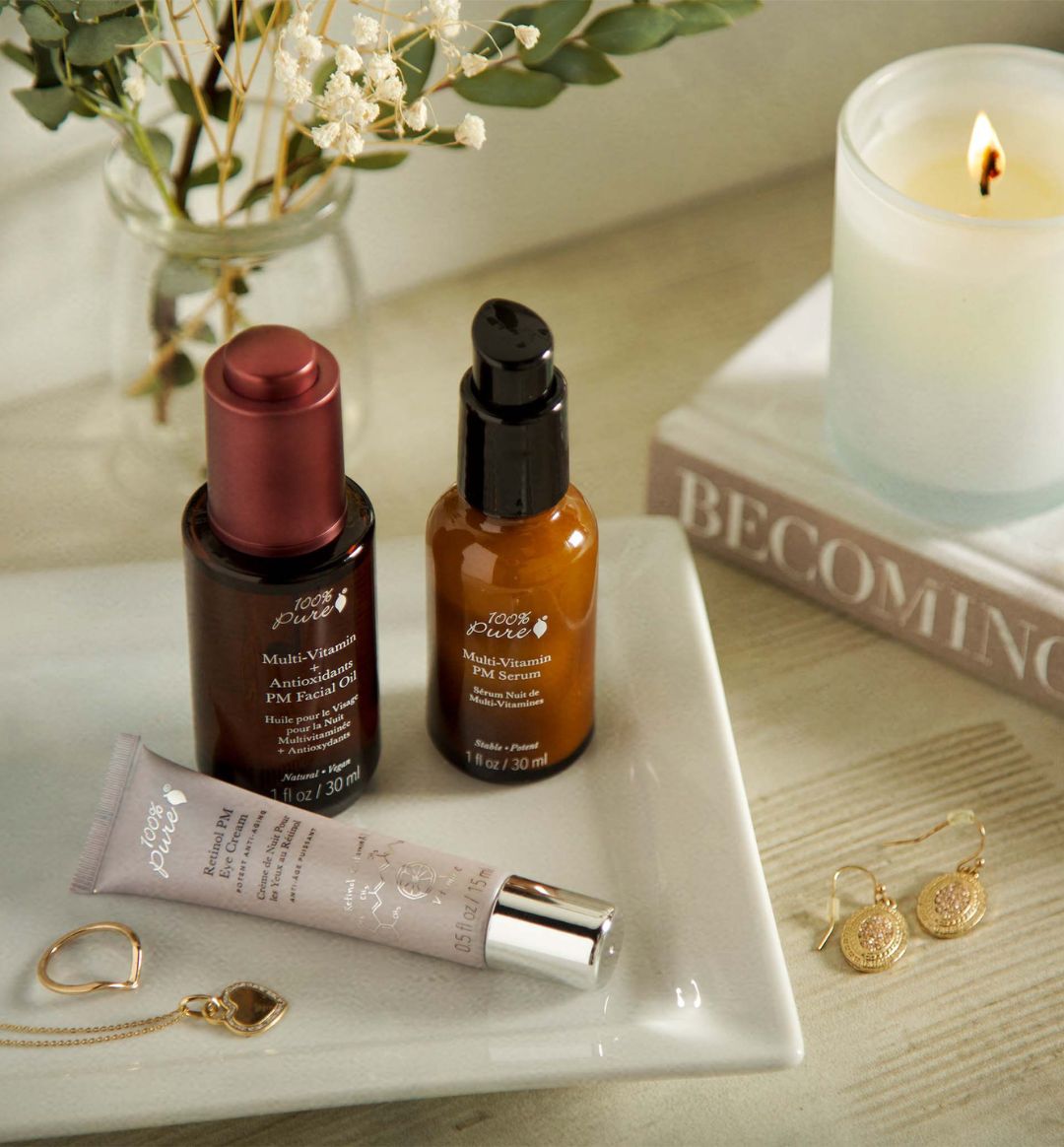In an era where the health of our planet is more crucial than ever, integrating sustainability into all aspects of our daily lives has become a necessity rather than a choice. This is especially true for our beauty routines, practices often overlooked in discussions about environmental conservation. Traditional beauty and skincare products and routines, while designed for enhancement and care, frequently come with a significant environmental footprint. The production, packaging, and disposal of these products contribute to pollution, waste accumulation, and the depletion of natural resources. From the plastic containers cluttering our oceans to the harsh chemicals infiltrating our water systems, the impact is both widespread and profound.
Recognizing the urgency of the situation, it is imperative to shift towards more sustainable beauty routines. This guide aims to illuminate the path towards achieving beauty practices that are not only effective but also kind to our planet. Our goal is to help you, the reader, make informed choices that align with eco-friendly and sustainable living principles. By rethinking our beauty routines, we can make a significant contribution to the global effort to preserve and protect our environment for future generations. This transition to sustainable beauty is not just about making small changes; it’s about fostering a deeper connection with the environment and becoming conscious stewards of our planet.

The Importance of Sustainable Beauty
In recent years, the conversation around beauty and skincare has expanded far beyond aesthetics and self-care, embracing the critical aspect of sustainability. The beauty industry, traditionally known for its glamorous allure, has a less-discussed underbelly: its significant environmental footprint. Traditional beauty and skincare products often come with a hefty environmental cost, including excessive packaging waste, the use of harmful chemicals, and unsustainable resource consumption. Addressing these issues is not just a matter of environmental responsibility but also a step towards a healthier lifestyle for consumers.
Environmental Implications of Traditional Beauty Products
The beauty industry is a major contributor to packaging waste, with billions of units of packaging produced annually, much of which is not recyclable or biodegradable. This plastic waste contributes to the growing crisis in our oceans and landfills, harming marine life and disrupting ecosystems. Moreover, the production and disposal of these packaging materials consume significant resources, including water and fossil fuels, exacerbating their environmental impact.
Additionally, many conventional beauty products contain harmful chemicals such as parabens, phthalates, and synthetic fragrances. These substances can cause health issues in humans and are also detrimental to wildlife and ecosystems when they enter the water supply through drainage systems. The manufacturing processes of these products often require extensive resource consumption, including water and energy, further increasing their environmental footprint.
Benefits of Adopting Sustainable Beauty Routines
Transitioning to sustainable beauty routines offers numerous benefits, both for individuals and the planet. On a personal level, using products with natural, non-toxic ingredients can lead to healthier skin and overall well-being. These products are less likely to cause irritation, allergies, or long-term health issues associated with exposure to synthetic chemicals.
From an environmental perspective, sustainable beauty routines contribute to reducing waste, conserving resources, and protecting ecosystems. By choosing products with eco-friendly packaging, such as biodegradable materials or refillable containers, individuals can significantly reduce their plastic footprint. Opting for products from brands that prioritize sustainable sourcing and manufacturing processes also helps conserve natural resources and reduce carbon emissions.
Moreover, the shift towards sustainable beauty routines encourages the industry to innovate and adopt more environmentally friendly practices. This consumer-driven demand can lead to broader changes, promoting biodiversity, reducing pollution, and fostering a more sustainable economy.
Identifying Eco-Friendly Products
Creating sustainable beauty routines is an essential step towards eco-friendly living. As consumers, it’s vital to make informed choices about the products we use daily, not just for our well-being but also for the health of our planet. Identifying eco-friendly products can be challenging, but with the right knowledge and tools, it’s possible to make choices that align with our values. This section offers practical tips on recognizing sustainable beauty products, focusing on ingredients, packaging, and company ethics, and highlights the importance of certifications and labels in making informed choices.
Ingredients: The Heart of Sustainable Beauty
The journey to identifying eco-friendly beauty products begins with understanding their ingredients. Sustainable products typically feature natural or organic ingredients, avoiding harmful chemicals and synthetics that are detrimental to the environment. Look for products that are free from parabens, phthalates, synthetic fragrances, and sulfates. Instead, opt for items made with plant-based, biodegradable ingredients that are gentle on the skin and the earth.
Packaging: Less is More
Sustainable packaging is another critical aspect of eco-friendly beauty products. Companies committed to sustainability often use recycled materials, biodegradable packaging, or reusable containers to minimize waste. Look for products with minimal packaging or those packaged in glass, metal, or recycled and recyclable materials. Refillable products are also an excellent choice, as they reduce the need for single-use packaging and help limit waste.
Company Ethics: Beyond the Product
Understanding a company’s ethics is as important as analyzing the product itself. Sustainable companies often embrace transparency, sharing detailed information about their sourcing, manufacturing processes, and environmental impact. Look for brands that support fair trade and ethical labor practices, and those that invest in sustainability initiatives, such as reforestation projects or renewable energy use. Choosing products from companies with a strong commitment to the environment and social responsibility contributes to a more sustainable and equitable world.
Certifications and Labels: Your Guide to Making Informed Choices
Navigating the world of sustainable beauty products is made easier by certifications and labels that indicate adherence to specific environmental and ethical standards. Certifications such as USDA Organic, Ecocert, Fair Trade Certified, and Cruelty-Free (Leaping Bunny or PETA) are reliable indicators of a product’s sustainability. These labels signify that a product has met stringent criteria regarding its ingredients, production processes, and company practices. When shopping for beauty products, look for these certifications to ensure you’re making truly eco-friendly choices.
By focusing on ingredients, packaging, company ethics, and seeking out certified products, consumers can significantly impact their environmental footprint. Creating a sustainable beauty routine is not just about choosing eco-friendly products but also about embracing a lifestyle that prioritizes the well-being of our planet. Through informed choices, we can all contribute to a more sustainable, beautiful world.

Reducing Waste in Your Beauty Routine
In an era where environmental sustainability is not just a preference but a necessity, reevaluating our beauty routines is a vital step towards eco-friendly living. Reducing waste in our beauty regimen is a crucial aspect of this shift, offering a pathway to minimize our ecological footprint while nurturing our skin and body. This section delves into practical steps for minimizing waste, and the impact of single-use items, and highlights how 100% PURE is pioneering efforts to reduce waste in the beauty industry.
Practical Steps for Minimizing Waste
Opt for Refillable Products: Embrace beauty products that come with refill options. Refillable products significantly reduce the need for purchasing new containers, thus cutting down on packaging waste. From foundation bottles to shampoo and conditioner dispensers, choosing refillable options is a small step with a big impact.
Recycle Packaging: Make recycling a non-negotiable part of your beauty routine. Look for products packaged in materials that are widely accepted by recycling programs, such as glass and certain plastics. Always check the recycling codes on your beauty packaging and dispose of them accordingly.
Choose Multi-Use Products: Streamline your beauty routine by selecting products that serve multiple purposes. For instance, a cheek and lip tint can reduce the need for separate blush and lipstick products. Not only does this approach simplify your beauty regimen, but it also reduces the amount of packaging waste generated.
The Impact of Single-Use Items and Alternatives
Single-use items, such as makeup wipes and disposable applicators, contribute significantly to environmental waste. Opting for reusable alternatives, like washable makeup removal pads and eco-friendly applicators, can drastically reduce the amount of waste generated by your beauty routine. These reusable options not only offer a more sustainable choice but often prove to be more cost-effective in the long run.
100% PURE’s Efforts to Reduce Waste
100% PURE is at the forefront of integrating sustainable practices into its business model, showcasing a commitment to reducing waste and supporting eco-friendly beauty routines. Their approach includes:
Pre-cycling Packaging: 100% PURE utilizes pre-cycled packaging, repurposing unused surplus packaging for their products. This innovative approach prevents the creation of new waste, emphasizing their dedication to minimizing environmental impact.
Biodegradable Ingredients: All products from 100% PURE are fully biodegradable, crafted from plant-based ingredients that harmoniously return to the earth, minimizing eco-disruption. This commitment ensures that the brand’s footprint on our planet is as light as possible.
Recycled Materials: The brand’s packaging is constructed from recycled materials, including post-consumer recycled glass, plastic, tin, and paper. This initiative significantly reduces the demand for new raw materials, thereby lessening the environmental impact.
Sustainable Product Line-Up: 100% PURE offers a range of products packaged in pre-cycled materials, including the Strawberry Brightening Scrub, Mushroom Peptide Serum, and Coffee Bean Face Serum, among others. Each product is designed with the environment in mind, ensuring that users can enjoy high-quality beauty solutions without compromising the planet’s health.
By adopting these practices, 100% PURE not only reduces its environmental footprint but also inspires its customers to partake in more sustainable beauty routines. The brand’s efforts in pre-cycling, utilizing biodegradable ingredients, and employing recycled materials pave the way for a more sustainable future in the beauty industry.
Supporting Ethical and Sustainable Brands
In our pursuit of beauty and personal care, the choices we make can have a profound impact on our planet and society. As part of adopting a more eco-friendly lifestyle, it’s crucial to support brands that prioritize sustainability and ethical practices. This not only helps reduce our ecological footprint but also promotes a more responsible industry. In this article section, we’ll explore how to identify and support such brands, with a special focus on the commendable efforts of 100% PURE.
Identifying Ethical and Sustainable Brands
When choosing beauty brands that align with eco-friendly values, look for those that demonstrate a strong commitment to sustainability and ethical practices. Here are key criteria to consider:
Transparency: Brands should openly share information about their sourcing, manufacturing processes, and business practices. This includes details about the ingredients in their products and the impact of their operations on the environment.
Commitment to Eco-friendly Practices: Look for brands that use sustainable, biodegradable ingredients and adopt practices that minimize waste and energy consumption. This includes using renewable energy sources and reducing emissions.
Community Involvement: Ethical brands often engage in initiatives that give back to communities, whether through charitable donations, community projects, or partnerships with local organizations.
Highlighting 100% PURE’s Sustainability Efforts
100% PURE stands out as a beacon of sustainability and ethical practices in the beauty industry. Here’s how they’re making a difference:
Forever Pure: 100% PURE’s conscious business practices are designed to have a lasting positive impact, demonstrating a commitment to a sustainable future through continuous evolution and support of local and global communities.
Clean to the Core: Their dedication to the planet is evident in their biodegradable formulas, ensuring that their products are non-toxic and safe for the Earth’s ecosystems.
Conscious Packaging: To reduce petrochemical-based packaging by 75% and shift entirely to post-consumer recycled (or recyclable) materials by 2024, 100% PURE also encourages in-store recycling by offering a free trial-size product as a reward.
Eco-Friendly Shipping: The brand uses recyclable shipping boxes and protects products with biodegradable packing peanuts made from corn starch, reducing waste and promoting recycling.
Climate Impact: Beyond achieving “Green Business Certification” for their California headquarters, 100% PURE has planted hundreds of thousands of trees with Trees for the Future, aiming to become climate-positive by 2024.
Beauty Doing Good: By partnering with local and international organizations, 100% PURE supports health and wellness globally. Their initiatives include donating meals to shelter dogs, planting trees to boost local economies in Africa, promoting breast cancer awareness, and providing essential resources to families in need in the Bay Area.
Supporting brands like 100% PURE not only allows us to enjoy high-quality beauty products but also ensures that our beauty routines contribute positively to the planet and society. By choosing ethically and sustainably, we can make a significant impact on the world, one beauty product at a time.
FAQ Section: Embracing Sustainable Beauty Practices
How can I transition to a sustainable beauty routine without overwhelming myself?
Transitioning to a sustainable beauty routine can be achieved gradually to avoid feeling overwhelmed. Start by identifying one or two products you use regularly and research eco-friendly alternatives. Incorporate these into your routine before making further changes. This step-by-step approach allows you to adjust without the pressure of overhauling your entire beauty regimen at once. Also, consider focusing on multi-use products and those with minimal packaging to reduce waste.
Are eco-friendly beauty products more expensive?
While it’s a common perception that eco-friendly beauty products are more expensive, this isn’t always the case. The price can vary widely depending on the brand, ingredients, and packaging. Many sustainable brands offer competitive pricing by focusing on simplicity and efficiency. Additionally, investing in quality, concentrated products can be more cost-effective in the long run, as they often require less product per use. Remember, the true cost of a product includes its environmental impact, not just the price tag.
Can I still achieve high-quality beauty results with sustainable products?+
Absolutely. Sustainable beauty products have come a long way in terms of performance and quality. Many eco-friendly brands are dedicated to using high-quality, natural ingredients that provide excellent results without harming the environment. With advancements in green chemistry and sustainable production practices, it’s entirely possible to find eco-friendly products that meet or even exceed the performance of traditional beauty products.
How do I dispose of or recycle beauty product packaging?
Proper disposal or recycling of beauty product packaging depends on the materials used. Start by checking if the packaging has recycling symbols and follow local recycling guidelines. Many brands now use recyclable or biodegradable packaging, making it easier to dispose of responsibly. For products that aren’t easily recyclable through curbside programs, look for beauty brands that offer take-back or recycling programs. Some stores and brands have drop-off points for used containers, often offering incentives for participation.
What are some small changes I can make today to start being more eco-conscious with my beauty routine?
- Opt for reusable alternatives: Swap single-use items like makeup wipes and cotton pads for reusable versions made of sustainable materials.
- Reduce water usage: Choose products that require less water to use, such as bar shampoos and conditioners.
- Simplify your routine: Less is more. Streamline your beauty routine to include only the products you need, reducing waste and consumption.
- Support sustainable brands: Purchase from brands committed to eco-friendly practices and packaging.
- Educate yourself: Read labels and familiarize yourself with eco-friendly ingredients and packaging options to make informed decisions.
Conclusion
In our journey through „Creating Sustainable Beauty Routines for Eco-Friendly Living,“ we have navigated the essentials of embedding sustainability into our beauty practices. The key points underscored the importance of selecting eco-friendly products, understanding the significance of natural ingredients, and the necessity of reducing waste in our daily beauty routines. These strategies not only benefit our health by minimizing our exposure to harmful chemicals but also have a profound positive impact on the environment.
We have learned that by choosing products with eco-conscious packaging and formulations, we contribute to the reduction of plastic waste and the pollution that plagues our ecosystems. Adopting reusable and biodegradable options helps in conserving resources and reducing our carbon footprint. Moreover, by supporting brands and companies committed to ethical practices and sustainability, we encourage the beauty industry as a whole to shift towards more environmentally friendly operations.
However, the transition to a sustainable beauty routine does not demand overnight changes nor does it require perfection from the outset. The emphasis is on gradual steps and conscious choices. Every small change, be it swapping a single-use cotton pad for a reusable alternative or choosing a product with less packaging, cumulatively contributes to a larger positive outcome. It’s about evolving our habits over time, becoming more mindful of our choices, and understanding the ripple effect they have on our health and the planet.
As we conclude, let’s remember that the journey towards sustainability is a personal and collective endeavor. Each action we take, no matter how small it may seem, is a step towards a healthier planet and a more sustainable future. We are all part of this beautiful world, and through our daily beauty routines, we have the power to make a difference. Let’s embrace this journey with optimism and commitment, knowing that together, we can create a more eco-friendly and beautiful world for generations to come.
https://www.100percentpure.com/cdn/shop/articles/Thumbnail_100_PURE_Creating_Sustainable_Beauty_Routines_for_Eco-Friendly_Living_1200x1200.jpg?v=1710827887
Source link




